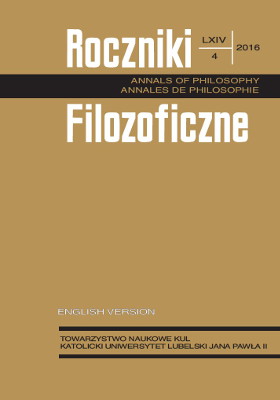Kant’s Reconception of Religion and Contemporary Secularism
Kant’s Reconception of Religion and Contemporary Secularism
Author(s): Anna TomaszewskaSubject(s): Philosophy, Special Branches of Philosophy, Philosophy of Religion
Published by: Towarzystwo Naukowe KUL & Katolicki Uniwersytet Lubelski Jana Pawła II
Keywords: Kant; religion; the public use of reason; secularism; radical Enlightenment; Spinoza
Summary/Abstract: In Secularism and Freedom of Conscience Jocelyn Maclure and Charles Taylor distinguish two models of a secular state: a republican and a pluralist-liberal one. Whereas the former displays a tendency to relegate religious beliefs from the public sphere for the sake of its postulated neutrality, the latter emphasizes the importance of freedom of conscience and, consequently, the right of individuals to manifest their religious commitments also in public. In this paper, I argue that Kant’s views on religion cannot provide a general framework that would warrant the pluralist-liberal kind of secularism. To that effect, focusing on Kant’s distinction between the private and the public use of reason, introduced in his 1784 essay on enlightenment, I claim that the public sphere construed along the Kantian lines could not provide a space in which a plurality of different, heteronomously grounded beliefs, could coexist with one another. Comparing Kant’s theory with Spinoza’s—particularly with regard to their critique of revelation and the proposal to reinterpret the Scripture in the light of universal moral principles—I also suggest that, as a rationalist about religion, Kant comes close to the secularizing tendency of the ‘radical Enlightenment.’
Journal: Roczniki Filozoficzne
- Issue Year: 64/2016
- Issue No: 4
- Page Range: 125-148
- Page Count: 24
- Language: English

